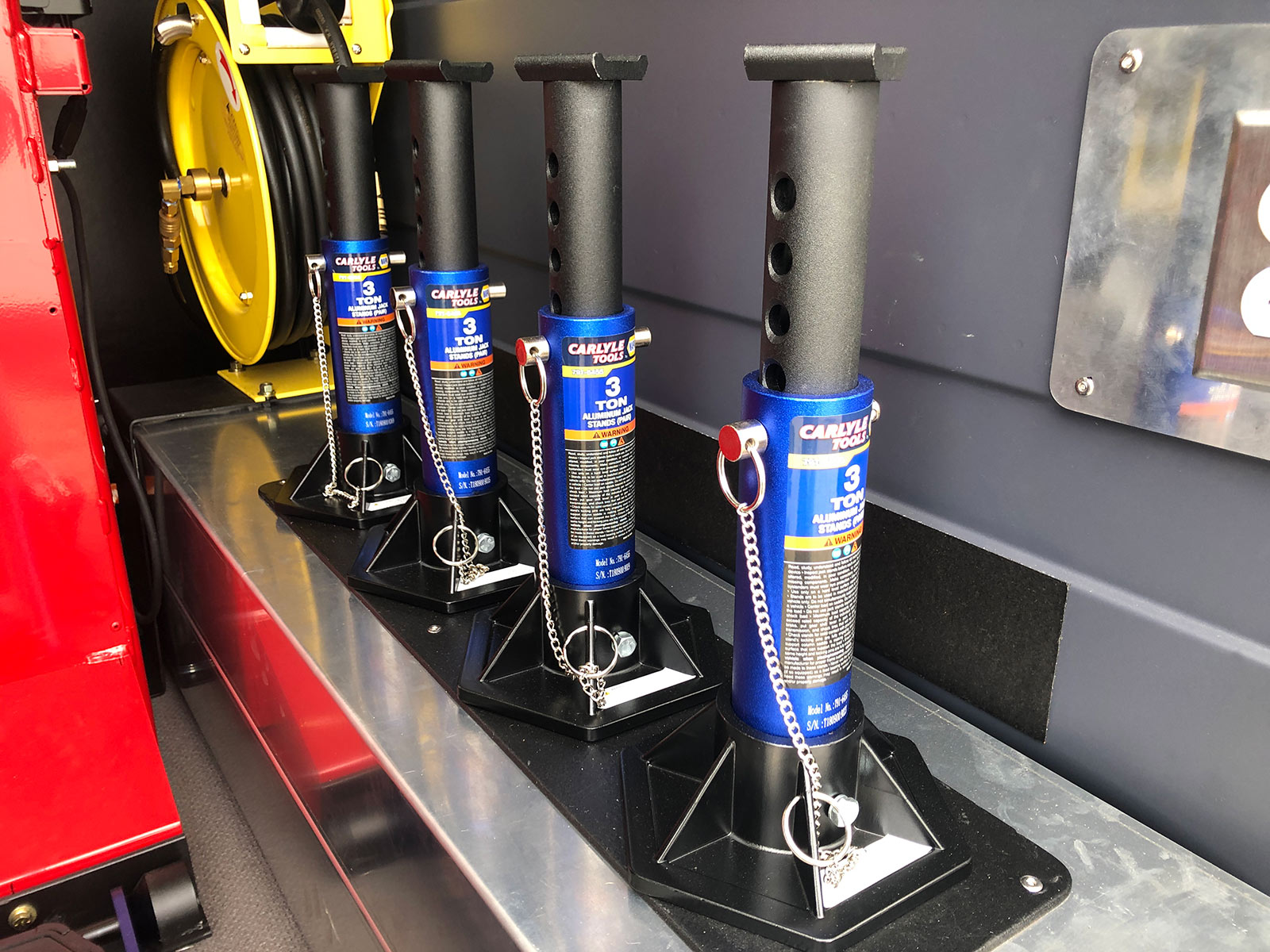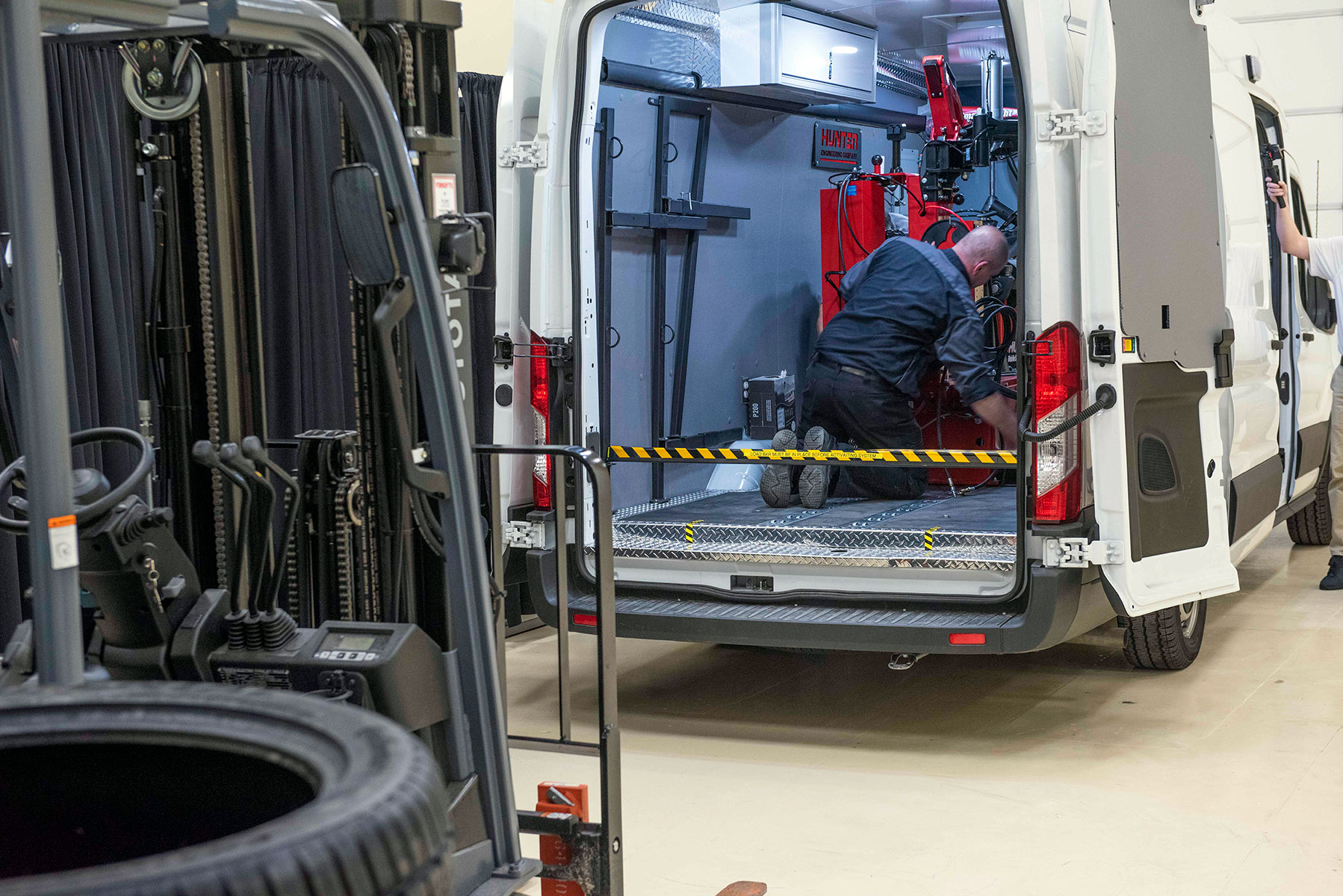Tire Service: Proven Methods for Optimum Tire Upkeep and Care
From making certain appropriate tire pressure to routine turning and positioning, there are tried and tested techniques that can dramatically expand the lifespan of your tires and boost overall driving experience. Allow's dig into the world of tire solution and discover the secrets to maintaining your tires in first-class form for the long haul - Mobile Tire Repair Las Vegas.
Value of Tire Stress
Proper tire pressure is an important factor in guaranteeing optimum lorry performance and security on the roadway. Keeping the advised tire pressure levels supplied by the supplier supplies numerous benefits. First of all, appropriate tire stress advertises better fuel effectiveness, as under-inflated tires can cause raised rolling resistance, creating the engine to function tougher and consume more fuel. Appropriate tire pressure guarantees even tread wear, boosting tire long life and conserving money in the long run by postponing the demand for early replacements. Additionally, correctly inflated tires add to boosted handling and stopping capabilities, important for safe driving in numerous roadway conditions. Over-inflated tires, on the other hand, can cause lowered grip and a harsher adventure. Alternatively, under-inflated tires are susceptible to overheating, which can result in blowouts and accidents. Frequently readjusting and inspecting tire stress, particularly soon trips, is a basic yet effective means to improve vehicle performance, expand tire life-span, and prioritize safety and security when driving.
Tire Rotation Standards
When thinking about tire turning standards, it is necessary to comprehend the value of this upkeep job in making best use of tire lifespan and maintaining ideal automobile efficiency. Tire turning entails altering the setting of each tire on a lorry to make sure also step wear. Front tires often tend to wear quicker than rear tires because of steering forces, making normal turning crucial for balanced wear patterns. The advised turning pattern differs relying on whether a lorry is front-wheel, rear-wheel, all-wheel, or 4x4. Usually, tires need to be revolved every 5,000 to 7,500 miles, or as recommended in the automobile handbook. Overlooking tire rotation can bring about irregular wear, influencing handling, traction, and possibly compromising automobile security. By sticking to appropriate rotation standards, motorists can extend the life of their tires, enhance fuel performance, and improve overall driving experience. Normal rotation is a straightforward yet efficient maintenance practice that contributes significantly to tire long life and lorry efficiency.

Benefits of Wheel Placement
Making certain correct wheel placement after tire turning is important for preserving balanced wear patterns and making the most of vehicle performance. Wheel alignment describes the change of the angles of the wheels to the maker's specifications. Among the vital benefits of wheel alignment is boosted steering and dealing with response. When the wheels are effectively lined up, it reduces guiding effort, making certain a smoother and a lot more controlled driving experience. In addition, right wheel alignment aids to prolong the life-span of your tires. Misaligned wheels can trigger uneven tire wear, causing premature tire substitute and increased upkeep costs.

Tire Footstep Depth Check
Executing a normal examination of tire step deepness is essential for maintaining safe driving problems and lengthening the lifespan of you could try these out your tires. Uneven step wear can show concerns with tire suspension, placement, or pressure, highlighting the value of routine tread deepness checks. By integrating tire tread deepness checks into your routine upkeep schedule, you can drive with confidence recognizing that your tires are in leading condition.
Seasonal Tire Examination
A thorough evaluation of tire condition customized to certain weather problems is important for maintaining ideal performance and safety throughout the year. Seasonal tire examination is a fundamental aspect of tire maintenance that ensures tires prepare to encounter the obstacles postured by various weather. To prepare for wintertime, it is important to check the tire stress frequently as cool temperatures can create tire pressure to go down. Checking tire step depth is also important to guarantee ample traction on snow and ice-covered roadways. In addition, checking for indications of damage, such as bulges or fractures, can aid prevent prospective tire failures. this link As the periods adjustment, it is essential to analyze tire problem and make any required modifications to ensure secure driving. By performing regular seasonal tire evaluations, motorists can lengthen tire life-span, boost gas performance, and most notably, ensure a secure driving experience in varying climate condition - Flat Tire Repair Las Vegas.
Final Thought
To conclude, maintaining correct tire stress, rotating tires regularly, straightening wheels properly, keeping an eye on tread deepness, and carrying out seasonal evaluations are important practices for optimum tire care. By adhering to these proven approaches, chauffeurs can guarantee their tires last longer, perform far better, and contribute to total car safety and security. It is very important to prioritize tire upkeep to avoid accidents, boost fuel performance, and prolong the life expectancy of tires.
Sufficient tire stress promotes far better gas effectiveness, as under-inflated tires can lead to raised rolling resistance, causing the engine to function harder and take in even more fuel.When taking into consideration tire rotation standards, it is essential to comprehend the relevance of this maintenance job in visit this site right here making best use of tire lifespan and keeping optimal car efficiency. Seasonal tire assessment is a basic facet of tire upkeep that ensures tires are ready to face the difficulties presented by various climate problems. By performing regular seasonal tire examinations, drivers can prolong tire lifespan, enhance gas efficiency, and most importantly, guarantee a protected driving experience in varying weather conditions.
In conclusion, keeping correct tire stress, turning tires consistently, straightening wheels appropriately, checking step deepness, and carrying out seasonal assessments are necessary methods for optimal tire care.